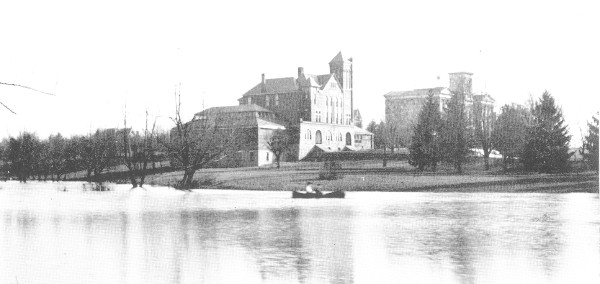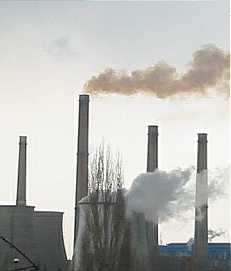|
Choices (journal)
''Choices'' is an online peer-reviewed magazine published by the Agricultural & Applied Economics Association (AAEA) for readers interested in the policy and management of agriculture, the food industry, natural resources, rural communities, and the environment. ''Choices'' is published quarterly and is available free online. It is currently one of three outreach products offered by AAEA, along with the more timely '' Policy Issues'' and the forthcoming Shared Materials section of the AAEA Web site. Format ''Choices'' was founded in 1986 as a print magazine. In 2002, the print version was discontinued and it was published solely online thereafter. Each issue typically contains eight articles divided among two overarching themes. A guest editor is selected for each theme, who helps organize and edit the articles for that issue. Articles may also be submitted directly, independent of any theme. These articles were previously published under the heading of Grab Bag and are now ca ... [...More Info...] [...Related Items...] OR: [Wikipedia] [Google] [Baidu] |
Economics
Economics () is the social science that studies the Production (economics), production, distribution (economics), distribution, and Consumption (economics), consumption of goods and services. Economics focuses on the behaviour and interactions of Agent (economics), economic agents and how economy, economies work. Microeconomics analyzes what's viewed as basic elements in the economy, including individual agents and market (economics), markets, their interactions, and the outcomes of interactions. Individual agents may include, for example, households, firms, buyers, and sellers. Macroeconomics analyzes the economy as a system where production, consumption, saving, and investment interact, and factors affecting it: employment of the resources of labour, capital, and land, currency inflation, economic growth, and public policies that have impact on glossary of economics, these elements. Other broad distinctions within economics include those between positive economics, desc ... [...More Info...] [...Related Items...] OR: [Wikipedia] [Google] [Baidu] |
Outreach
Outreach is the activity of providing services to any population that might not otherwise have access to those services. A key component of outreach is that the group providing it is not stationary, but mobile; in other words, it involves meeting someone in need of an outreach service at the location where they are. Compared with traditional service providers, outreach services are provided closer to where people may reside, efforts are very often voluntary, and have fewer, if any, enforceable obligations. In addition to delivering services, outreach has an educational role, raising the awareness of existing services. It includes identification of under-served populations and service referral and the use of outreach tools like leaflets, newsletters, advertising stalls and displays, and dedicated events. Outreach is often meant to fill in the gap in the services provided by mainstream (often governmental) services, and is often carried out by non-profit, nongovernmental organizati ... [...More Info...] [...Related Items...] OR: [Wikipedia] [Google] [Baidu] |
Academic Journals Established In 1986
An academy (Attic Greek: Ἀκαδήμεια; Koine Greek Ἀκαδημία) is an institution of secondary or tertiary higher learning (and generally also research or honorary membership). The name traces back to Plato's school of philosophy, founded approximately 385 BC at Akademia, a sanctuary of Athena, the goddess of wisdom and skill, north of Athens, Greece. Etymology The word comes from the ''Academy'' in ancient Greece, which derives from the Athenian hero, ''Akademos''. Outside the city walls of Athens, the gymnasium was made famous by Plato as a center of learning. The sacred space, dedicated to the goddess of wisdom, Athena, had formerly been an olive grove, hence the expression "the groves of Academe". In these gardens, the philosopher Plato conversed with followers. Plato developed his sessions into a method of teaching philosophy and in 387 BC, established what is known today as the Old Academy. By extension, ''academia'' has come to mean the accumulation, dev ... [...More Info...] [...Related Items...] OR: [Wikipedia] [Google] [Baidu] |
Agricultural Economics
Agricultural economics is an applied field of economics concerned with the application of economic theory in optimizing the production and distribution of food and fiber products. Agricultural economics began as a branch of economics that specifically dealt with land usage. It focused on maximizing the crop yield while maintaining a good soil ecosystem. Throughout the 20th century the discipline expanded and the current scope of the discipline is much broader. Agricultural economics today includes a variety of applied areas, having considerable overlap with conventional economics.Daniel A. Sumner, Julian M. Alson, and Joseph W. Glauber (2010). "Evolution of the Economics of Agricultural Policy", ''American Journal of Agricultural Economics'', v. 92, pp. 403-423. Agricultural economists have made substantial contributions to research in economics, econometrics, development economics, and environmental economics. Agricultural economics influences food policy, agricultural polic ... [...More Info...] [...Related Items...] OR: [Wikipedia] [Google] [Baidu] |
Economics Journals
Economics () is the social science that studies the production, distribution, and consumption of goods and services. Economics focuses on the behaviour and interactions of economic agents and how economies work. Microeconomics analyzes what's viewed as basic elements in the economy, including individual agents and markets, their interactions, and the outcomes of interactions. Individual agents may include, for example, households, firms, buyers, and sellers. Macroeconomics analyzes the economy as a system where production, consumption, saving, and investment interact, and factors affecting it: employment of the resources of labour, capital, and land, currency inflation, economic growth, and public policies that have impact on these elements. Other broad distinctions within economics include those between positive economics, describing "what is", and normative economics, advocating "what ought to be"; between economic theory and applied economics; between rational an ... [...More Info...] [...Related Items...] OR: [Wikipedia] [Google] [Baidu] |
University Of Kentucky
The University of Kentucky (UK, UKY, or U of K) is a Public University, public Land-grant University, land-grant research university in Lexington, Kentucky. Founded in 1865 by John Bryan Bowman as the Agricultural and Mechanical College of Kentucky, the university is one of the state's two land-grant universities (the other being Kentucky State University) and the institution with the highest enrollment in the state, with 30,545 students as of fall 2019. The institution comprises 16 colleges, a graduate school, 93 undergraduate programs, 99 master's degrees, master programs, 66 Doctor of Philosophy, doctoral programs, and four professional programs. It is Carnegie Classification of Institutions of Higher Education, classified among "R1: Doctoral Universities – Very high research activity". According to the National Science Foundation, Kentucky spent $393 million on research and development in 2018, ranking it 63rd in the nation. The University of Kentucky has fifteen libraries ... [...More Info...] [...Related Items...] OR: [Wikipedia] [Google] [Baidu] |
Purdue University
Purdue University is a public land-grant research university in West Lafayette, Indiana, and the flagship campus of the Purdue University system. The university was founded in 1869 after Lafayette businessman John Purdue donated land and money to establish a college of science, technology, and agriculture in his name. The first classes were held on September 16, 1874, with six instructors and 39 students. It has been ranked as among the best public universities in the United States by major institutional rankings, and is renowned for its engineering program. The main campus in West Lafayette offers more than 200 majors for undergraduates, over 70 masters and doctoral programs, and professional degrees in pharmacy, veterinary medicine, and doctor of nursing practice. In addition, Purdue has 18 intercollegiate sports teams and more than 900 student organizations. Purdue is the founding member of the Big Ten Conference and enrolls the largest student body of any individual univer ... [...More Info...] [...Related Items...] OR: [Wikipedia] [Google] [Baidu] |
Policy Issues
''Policy Issues '' is a series of online peer-reviewed articles published by the Agricultural & Applied Economics Association (AAEA). Each article presents a short analysis and discussion focusing on timely policy issues targeted for those in public and private sector decision-making roles that have a stake in the national issues addressed. It is currently one of three outreach products offered by AAEA, along with the online policy magazine ''Choices A choice is the range of different things from which a being can choose. The arrival at a choice may incorporate motivators and models. For example, a traveler might choose a route for a journey based on the preference of arriving at a given ...'' and the forthcoming Shared Materials section of the AAEA Web site. Format Each issue of ''Policy Issues'' focuses on a timely issue in agricultural policy. The purpose is to provide expert analysis quickly, on a topic that is still relevant to those in the public and private sector. A ... [...More Info...] [...Related Items...] OR: [Wikipedia] [Google] [Baidu] |
Environmental Economics
Environmental economics is a sub-field of economics concerned with environmental issues. It has become a widely studied subject due to growing environmental concerns in the twenty-first century. Environmental economics "undertakes theoretical or empirical studies of the economic effects of national or local environmental policies around the world. ... Particular issues include the costs and benefits of alternative environmental policies to deal with air pollution, water quality, toxic substances, solid waste, and global warming." Environmental economics is distinguished from ecological economics in that ecological economics emphasizes the economy as a subsystem of the ecosystem with its focus upon preserving natural capital. One survey of German economists found that ecological and environmental economics are different schools of economic thought, with ecological economists emphasizing "strong" sustainability and rejecting the proposition that human-made ("physical") capital ... [...More Info...] [...Related Items...] OR: [Wikipedia] [Google] [Baidu] |
Agricultural & Applied Economics Association
The Agricultural & Applied Economics Association (AAEA) is a not-for-profit professional association for those interested in the field of agricultural and applied economics. The AAEA association has an annual meeting every year. It publishes two journals, the ''American Journal of Agricultural Economics'' (''AJAE''), and the ''Applied Economic Perspectives and Policy ''Applied Economic Perspectives and Policy'' (''AEPP'') is a peer-reviewed journal of applied economics and policy. Published four times per year, it is the one of two journals published by the Agricultural & Applied Economics Association (AAEA), ...'' (''AEPP'') both of which are published by Wiley. References External linksAAEA Home Page [...More Info...] [...Related Items...] OR: [Wikipedia] [Google] [Baidu] |
Rural Development
Rural development is the process of improving the quality life and economic well-being of people living in rural areas, often relatively isolated and sparsely populated areas. Rural development has traditionally centered on the exploitation of land-intensive natural resources such as agriculture and forestry. However, changes in global production networks and increased urbanization have changed the character of rural areas. Increasingly rural tourism, niche manufacturers, and recreation have replaced resource extraction and agriculture as dominant economic drivers. The need for rural communities to approach development from a wider perspective has created more focus on a broad range of development goals rather than merely creating incentive for agricultural or resource-based businesses. Education, entrepreneurship, physical infrastructure, and social infrastructure all play an important role in developing rural regions. Rural development is also characterized by its emphasis o ... [...More Info...] [...Related Items...] OR: [Wikipedia] [Google] [Baidu] |
Natural Resource Economics
Natural resource economics deals with the supply, demand, and allocation of the Earth's natural resources. One main objective of natural resource economics is to better understand the role of natural resources in the economy in order to develop more sustainable methods of managing those resources to ensure their availability for future generations. Resource economists study interactions between economic and natural systems, with the goal of developing a sustainable and efficient economy. Areas of discussion Natural resource economics transdisciplinary field of academic research within economics that aims to address the connections and interdependence between human economies and natural ecosystems. Its focus is how to operate an economy within the ecological constraints of earth's natural resources.Encyclopedia of EarthArticle Topic: ecological economics/ref> Resource economics brings together and connects different disciplines within the natural and social sciences connected t ... [...More Info...] [...Related Items...] OR: [Wikipedia] [Google] [Baidu] |





